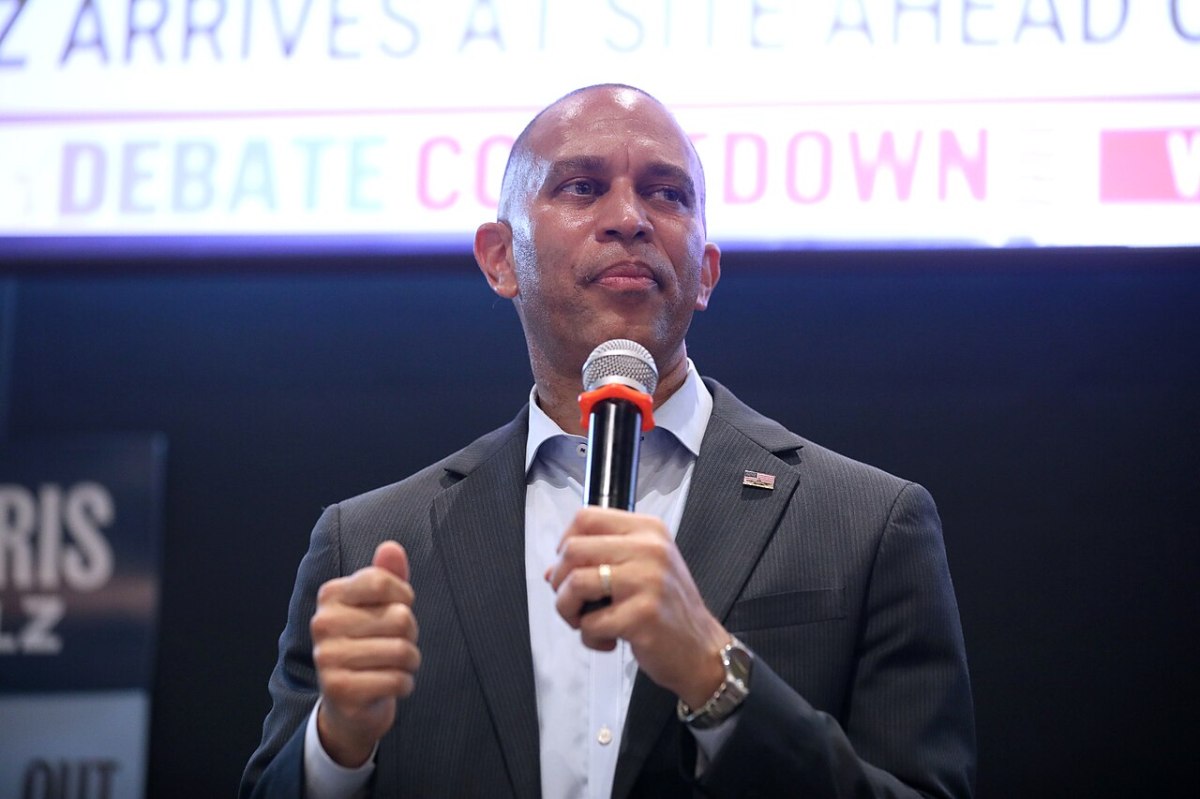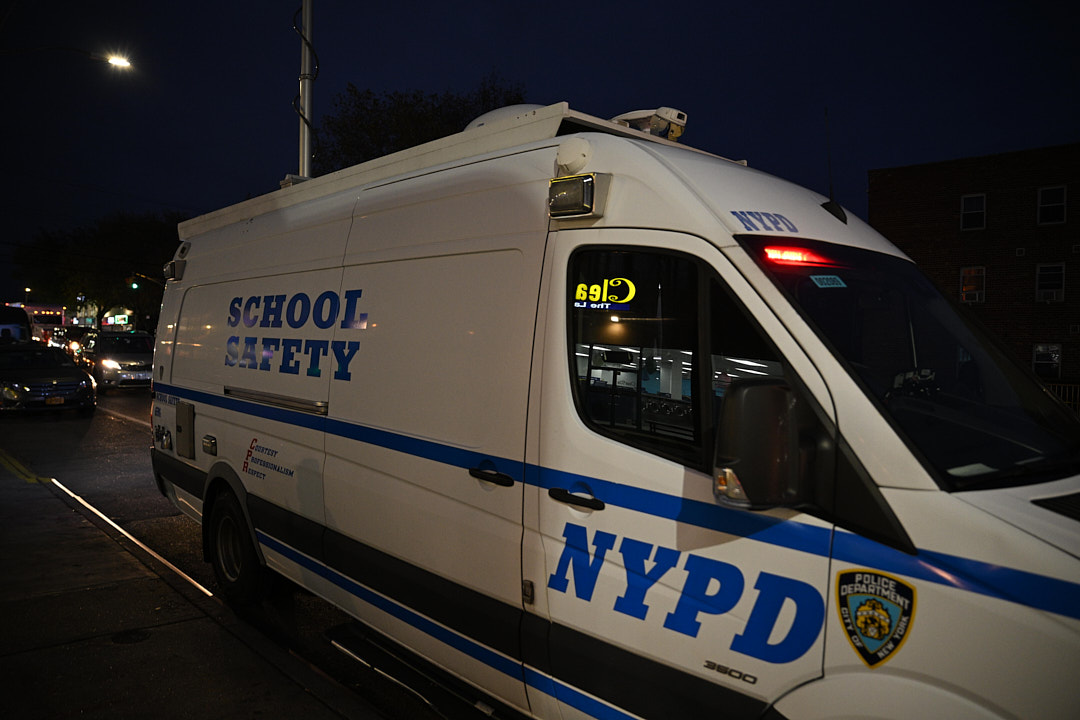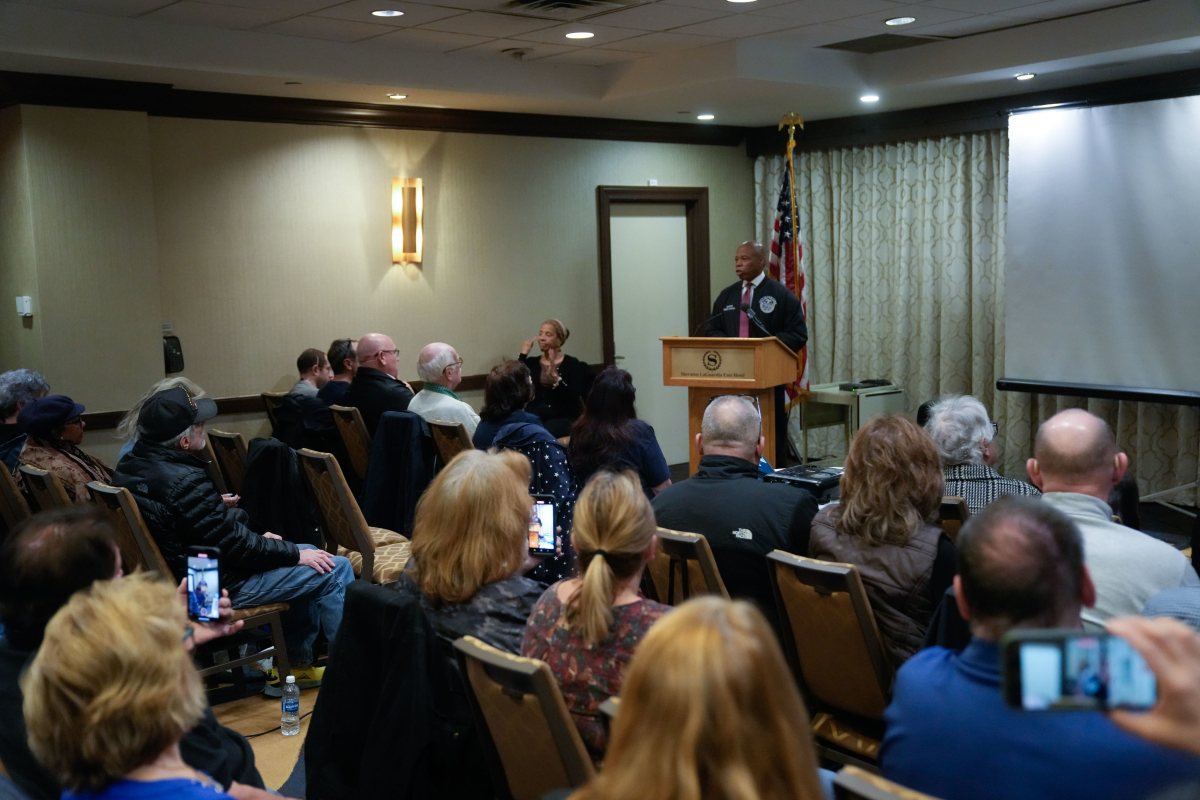If City Hall wants New Yorkers to stop dumping food scraps in the trash, it needs to lead the way, according to the city’s public advocate.
A bill being reviewed by the City Council would mandate a pilot organics collection program in some buildings that house city agencies.
“Our public servants should serve as a model to propel a cultural shift on organics recycling throughout the city,” said Public Advocate Letitia James during a City Council hearing Tuesday on the bill she proposed with City Councilman Robert Holden.
The current bins located at the seat of New York City government aren’t well used, according to City Councilman Antonio Reynoso, who chairs the Committee on Sanitation and Solid Waste Management.
“City Hall, we heard, does a terrible job of putting organics in the bin and doing what they are supposed to,” Reynoso told Sanitation Commissioner Kathryn Garcia during the hearing.
“Perhaps we have to do some education at City Hall to deepen our engagement,” Garcia responded. “It’s possible everyone is eating everything. It’s unlikely, but possible.”
Officials later pointed out that little — if any — food preparation actually takes place at City Hall. Staffers for the City Council and the Mayor’s office either bring their own food or purchase takeout for meals.
New Yorkers have been slow to embrace organics waste collection despite the addition of curbside pickup and drop-off sites in some neighborhoods. An ambitious expansion plan is on hold while the city works out kinks in routes and collection truck use for the program.
“Our intention is to get back on track,” Garcia said.
Organics, such as food scraps, food-soiled paper and yard waste, account for 34 percent of waste collected by city sanitation trucks. Keeping it out of the regular trash is part of the city’s long-term plan to send zero waste to landfills by 2030.
Garcia said the department collected 43,000 tons of organics last year.
Next spring, the agency will launch a new food portal designed to keep surplus edible food from ending up in the trash. The portal, mandated by a 2017 law, is designed to link restaurants, grocery stores, produce markets, dining facilities and other businesses with organizations that can safely reuse the food.
Reynoso said he would push for the sanitation department to get a larger budget for marketing, so the public can be better educated on how to recycle and properly dispose of trash.


































